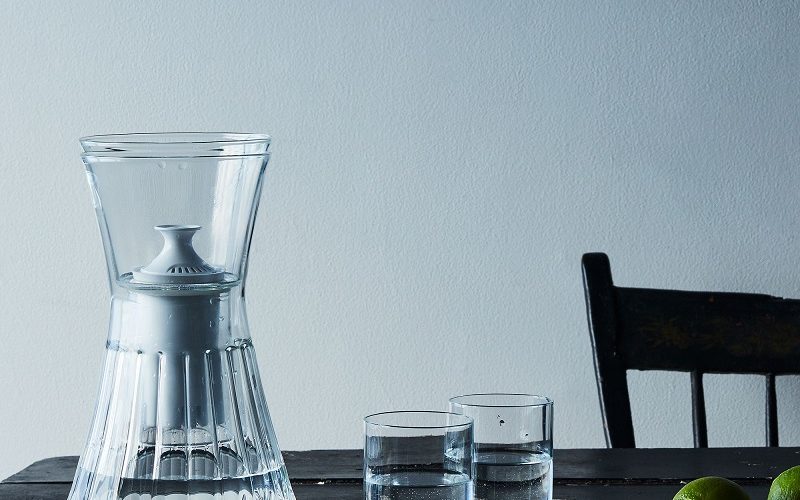Introduction
Water filter pitchers include small filtering media that may be used at home or on the move to clean water. It’s as simple as filling the pitcher with water. Then, when it passes through the filter cartridge and into the reservoir, wait.
You may get filtered, clean, and clear water in less than fifteen minutes for a fraction of the cost of bottled water.
It’s no surprise that water filtration pitchers are rising in popularity, given that more and more people are becoming passionately interested in little technology. The pressing question, though, is how water filter pitchers function and what their major qualities are. To be honest, there’s no special sauce involved.
What is a water filter pitcher?
Water filter pitchers are a convenient and non-permanent way to remove contaminants from your source water. They are cost-effective, convenient, easy to maintain, and operate without hiccups.
Filter pitchers range in price from $20 to $175. However, beware of spoilers! The most costly aren’t usually the most effective.
The best model for you is one that eliminates a wide range of dangerous chemicals from your tap or well water in the shortest amount of time feasible. Of course, having more filtering capacity is usually a plus.
By eliminating odor-causing compounds like chlorine, most filter pitchers can now instantly enhance the flavor and smell of your drinking water. Heavy metals, pesticides, disinfection byproducts, PFAs, pathogens, and other contaminants are all targets for certain high-quality ones.
How does it work?
In all water filter pitchers, the essential principles of water purification are the same. Filter media limits, adsorbs, absorbs, or rejects contaminants as water travels through the filter cartridge. Physical filtration is used by certain filters, whereas chemical filtration is used by others.
Because the filter medium is so tiny, most people question how effective it is. The question is very reasonable. The solution comes in the fact that these pocket-sized filters are designed to purify a little volume of water and only need to be updated every one or two months.
The majority of under-sink water filters employ the same filtering methods, but because of the larger filter cartridge size, they last longer. As a result, replacing filter pitcher cartridges on a regular basis is essential for maximum operation.
All water filter pitchers are not the same
Because of the numerous filtration processes available, filter pitchers’ capacity to remove pollutants spans a wide range. As a result, you should purchase wisely and evaluate each filter based on customer feedback and NSF certifications.
Popular businesses like Brita, as is their wont, utilize sophisticated jargon as a smokescreen to present a rosy picture. But what exactly do their pitchers get rid of? The majority of the time, it’s just chemicals generating unpleasant odors and tastes.
The majority of water filter pitchers are made of carbon. While activated carbon filters are excellent at removing chlorine and reducing a few heavy metals, this is where the benefits end.

What do they filter?
Water filters are the second most common form of water purification technology, according to Consumer Reports.
The comfort and convenience provided by these handy devices contributed to the steeping win. Furthermore, some sophisticated filters address the most prevalent issues linked with drinking water that is deficient in flavour and odour.
Some high-quality ones go even farther, removing potentially hazardous disease-causing pollutants. Chlorine, Chloramine, Lead, Chromium 6, Cadmium, BPA, Pharmaceuticals, VOCs, Semi-volatile chemicals, PFAS, Fluoride, and Nitrates are just a few of the toxins that water filter pitchers may help to minimize in municipal water.
Filter Replacements and Cleaning
Your water filter jugs, like all household equipment and devices, require a small amount of care to keep them in good working order.
Cartridge replacements are the most critical part of all water treatment methods. The frequency with which you should replace the filter cartridge is totally dependent on the type of filter you have, its service life, and the quality and consumption of your water.
Brita filters, for example, must be replaced every 40 gallons, but an Epic Pure water filter pitcher may treat 150 gallons before needing to be replaced.
As a result, it’s advisable to stick to the manufacturer’s guidelines. You should also be aware of telltale indicators like diminished flow and a bad taste, which indicate that your filter needs to be replaced.
It’s also important to keep your filter pitcher clean to avoid the growth of live organisms in the grooves and crevices. Weekly cleaning with soap, water, and a spare toothbrush is recommended. Finally, air dry your pitcher and reinstall all pieces for an endless supply of contaminant-free water.




